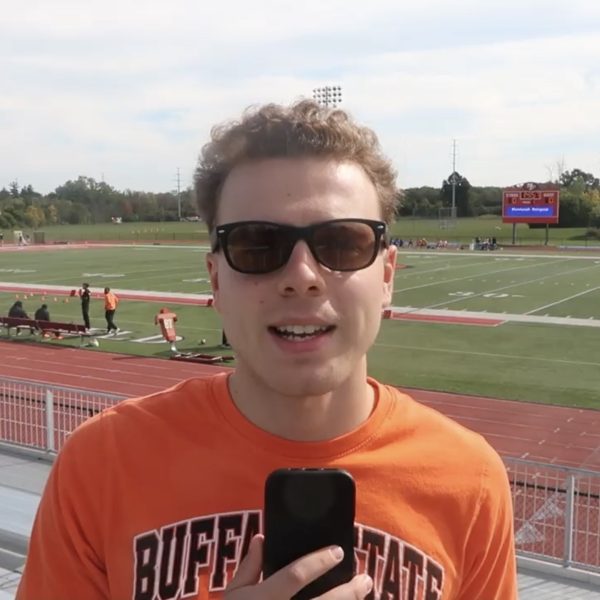Speech Lanuage Pathology program gaining traction
April 13, 2016
The Speech Language Pathology (SLP) program is one of the majors that have been gradually seeking attention from upperclassmen at SUNY Buffalo State.
The major might be under the radar, but not undervalued. Dating back to the beginning of the 2015 fall semester, the SLP program has received interest from numerous undergraduate and graduate students, not just from Buffalo State, but also other college students as well.
It is a high demand program, which in fact is highest of all programs at Buffalo State due to a great reputation and the ability to get the job done. In order to apply for the major, you have to be at least a junior, have a 3.0 GPA and have 60 credits.
The SLP program helps prepare their students with an understanding in regular speech, language, swallowing and hearing. They also make sure their students cover the area of communication and disorders. The speech-language hearing clinic prepares its graduate students by helping them understand the different type of disorders, and how they can be treated while being monitored by the faculty members of the clinic.
Of the students that apply to the program, only 15 percent get accepted.
“I as chair meet with every student entering the major to let them know what they can expect and what to do to be successful,” Dr. Constance Dean Qualls, department chair, said. “It is a highly competitive program that is science based.”
There are different reasons why students want to join the program, due to its substantial reputation, and others may be a bit more personal.
When asked why she joined the program, Lauren Farage said “My mother was born deaf and went through therapy. Seeing her difficulties and successes made me want to be an integral part of that.”
The SLP program has done a great job in preparing their students for their graduate program and also for the workforce. According to the department, they try to promote creativity with excellence in academic, research and clinical learning.
“We prepare our students for working in any educational setting that demands perseverance. We have the ability to prep our students for the masters program, education programs, or other health related programs,” Dr. Deborah Insalaco said.
Since 2008, 100 percent of the graduate students have passed the Praxis, which is a national board exam.
“I learned a lot of valuable information that can be used in situations and got into a really good grad school and felt prepared to continue my education,” Farage said.
Outside of the classroom, the SLP program has developed an immense student organization. The National Student Speech-Language-Hearing Association (NSSLHA) partakes in workshops, meetings, lectures and fundraisers. NSSLHA has raised money for scholarships, and for the clinic for children with speech and language disorders.
In 2014, they were able to accumulate over $5,000 in their annual fundraiser. Their earnings went to the Craniofacial Center at Women and Children’s Hospital and the Buffalo State Speech- Language-Hearing Clinic.
The SLP program’s students have reached notable academic achievements, too. Since 2014, over 60 students were awarded scholarships, and over 30 of them attained honor status.
In previous academic school years, multiple students were able to receive academic scholarships as well and reach honors. The faculty is student-friendly/centered, which allows students to feel comfortable and flourish within the program.
“Teaching SLP is enjoyable. The enthusiasm and preparation are sources of inspiration. I work in the clinic, have the ability to see students as clinicians and academic learners,” stated Insalaco.
In the 2010-2011 academic school year, there was a significant increase in the number of males admitted into the program. Moving forward from then, the number of males in the program has never been equal to the number of females in the program, or even close to.
Currently, the SLP program is predominantly young white females. Although the department has been receiving more attention over the years, it still lacks diversity within the program. The department would like to see more male African-American students and other student from different ethnic backgrounds.
“Diversity of perspective is the most important thing for all organizations, and then when you get that your program will truly blossom,” Qualls said.
email: [email protected]



